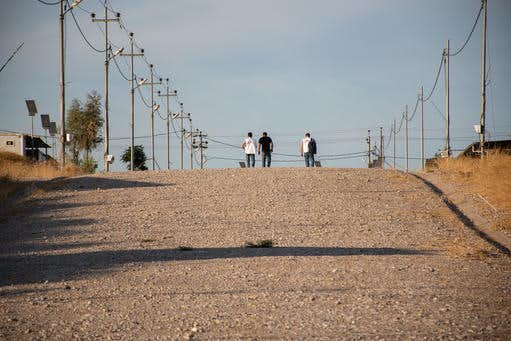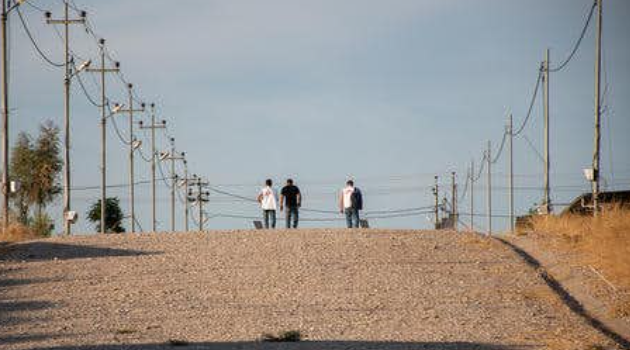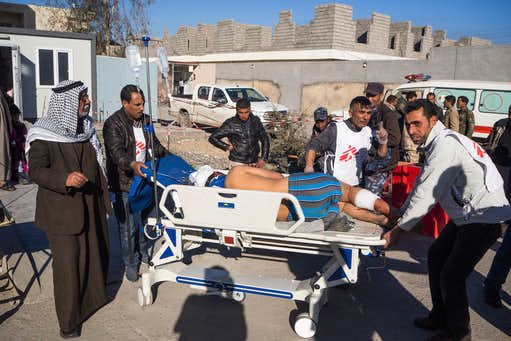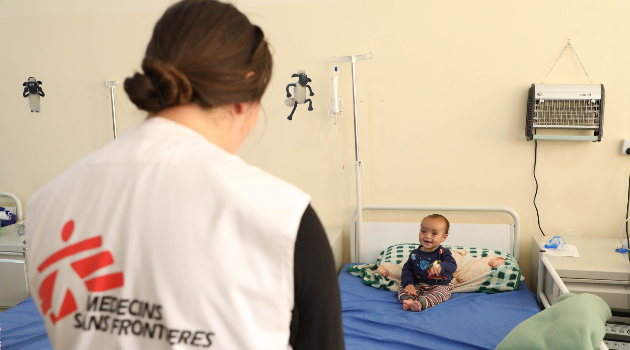Highlights
 11,292 refugees crossed into Iraq since the commencement of hostilities.
11,292 refugees crossed into Iraq since the commencement of hostilities.
 The number of refugees entering the KR-I continues to increase. On average, over 1,200 new arrivals were recorded on a daily basis during the past seven days.
The number of refugees entering the KR-I continues to increase. On average, over 1,200 new arrivals were recorded on a daily basis during the past seven days.
 Bardarash Camp has reached its capacity, new arrivals will now be hosted in Gawilan camp
Bardarash Camp has reached its capacity, new arrivals will now be hosted in Gawilan camp
 The Special Representative of the United Nations Secretary-General for Iraq, Ms. Jeanine Hennis-Plasschaert, visited Bardarash camp on Wednesday 23 October 2019.
The Special Representative of the United Nations Secretary-General for Iraq, Ms. Jeanine Hennis-Plasschaert, visited Bardarash camp on Wednesday 23 October 2019.
 Over 400 individuals have been cleared to leave Bardarash Camp for family reunification in towns and communities in KRI.
Over 400 individuals have been cleared to leave Bardarash Camp for family reunification in towns and communities in KRI.
 Kurdistan Region of Iraq authorities confirmed that all informal borders will remain open for Syrians to seek safety
Kurdistan Region of Iraq authorities confirmed that all informal borders will remain open for Syrians to seek safety
Key figures
Estimated planning figures for potential refugee influx from North East Syria 50,000 individuals in six months
10,699 individuals hosted in Bardarash camp as of 25 October 2019
Existing Population of Concern in Iraq
270,844 Refugees and Asylum-Seekers (as of 30 September 2019)
229,285 Syrian refugees (as of 30 September)
1,55 million Internally Displaced Persons (IDPs) (as of 31 August 2019)
4,35 million Returnees (as of 31 August 2019)
Contingency stock CRIs and tents for 10,000 families in country
Population movement
As of 25 October 2019, 11,292 refugees have crossed through informal crossing points since 14 October. Most of the refugees arriving are from northern Syria – Sare Kani village, Qamishly city, Hassaka governorate, Gre Spe village, Darbasiya village, Til Tamir village, Derike village and Amoda village.
A total of 10,699 refugees are now hosted in Bardarash camp, and 180 refugees are hosted in Domiz I camp. 413 refugees have left Bardarash Camp, after security clearance by Assayesh and registration with UNHCR, either for family reunification or because they have been identified as extremely vulnerable individuals. UNHCR has been informed that from today, 26 October, family reunification will only be possible for those who have family ties in Duhok governorate.
Board of Relief and Humanitarian Affairs (BRHA) agreed with UNHCR and other humanitarian actors that from 26 October new arrivals will be accommodated in Gawilan Camp, which is 30 km further south of Bardarash camp. New tents have been pitched and the new sector in Gawilan can accommodate up to 1,588 families. Gawilan camp was established in September 2013 and currently accommodates 8,115 Syrian refugees. New arrivals will be able to access existing services. In the event that Gawilan Camp reaches its full capacity as well, new arrivals will be accommodated in Garmawa IDP Camp.
Discussions are ongoing regarding the IDP population currently living in Garmawa camp.
KRI Authorities confirmed that all informal entry points will remain open for Syrian refugees (including Al Walid), however, people entering through these crossing points will be directly transferred by Assayesh to Sahela transit site. Al Walid transit site will no longer host refugees overnight.
UNHCR in collaboration with the BRHA, UNICEF and Assayesh identified a new transit site near Sahela crossing point. The new site (Sahela 2) is located before the main Assayesh check point and allows easier access for humanitarian agencies. Since Syrian refugees arrive during the night and will be transported from all five crossing points to Sahela, they will overnight at the Sahela transit site where they go through initial security screening before being transported to camps.
UNHCR is currently installing three additional rubb halls in Sahela, in addition to the existing rubb hall, two prefab offices, and the covered hall in order to accommodate the large number of people who will be spending the night there. After the current installations are finalized, Sahela 1 and 2 transit sites will have the capacity to host between up to 2,500 individuals per night.
Médecins Sans Frontières (MSF) and MedAir are providing primary health services at Sahela crossing point during the day while Samaritan’s Purse covers the night shift. Directorate General of Health (DOH) continues to provide vaccinations.
(Source: ReliefWeb)

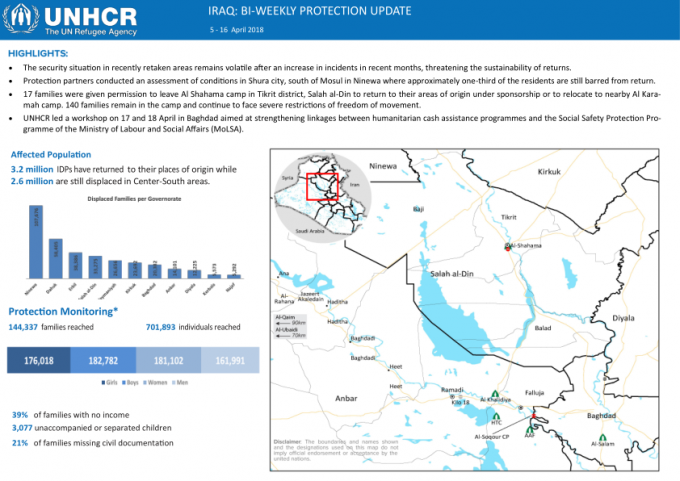
 11,292 refugees crossed into Iraq since the commencement of hostilities.
11,292 refugees crossed into Iraq since the commencement of hostilities.
